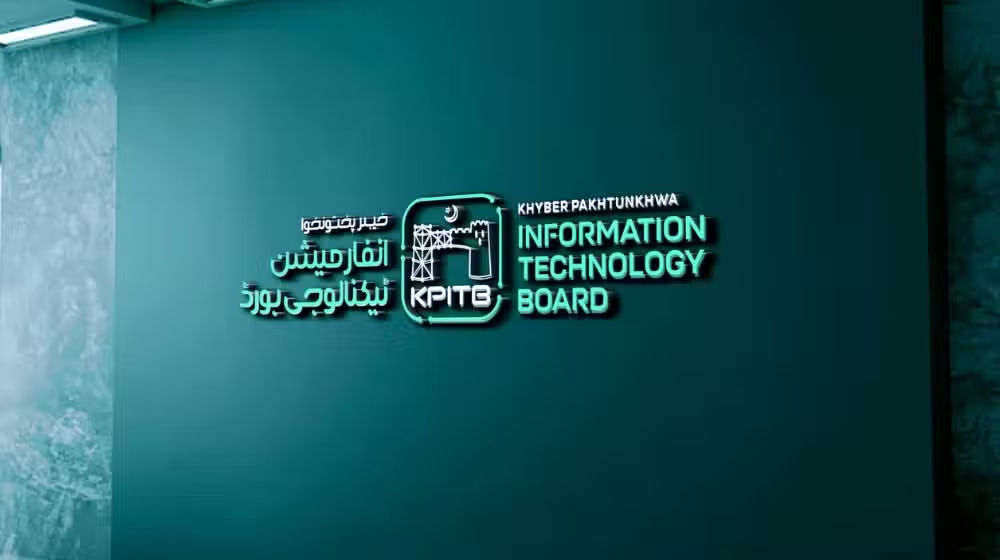The Khyber Pakhtunkhwa Information Technology Board (KPITB) is rapidly transforming the province’s public service landscape through automation, digital payments, and a vision to go entirely cashless by 2030. With the theme of Reform. Perform. Transform. under Vision 2030, KPITB is setting new benchmarks in digital governance across Pakistan.
In a historic move, the Khyber Pakhtunkhwa Cabinet recently approved Pakistan’s first public Digital Payments and FinTech Strategy, paving the way for groundbreaking initiatives across government departments. This strategy outlines a comprehensive roadmap to eliminate cash-based transactions, digitize government functions, and enhance service delivery for every citizen.
Revolutionizing Public Services with Digital Platforms
A major milestone in this journey is the complete automation of the Arms License Section within the KP Home Department. Citizens can now apply for arms licenses online through the Dastak platform, a Unified Public Service Delivery System, and make payments via Paymir, KP’s homegrown digital payment gateway. This initiative has not only simplified the process but also ensured full transparency and efficiency. In just a few months, over 175,000 arms licenses have been issued, generating more than Rs. 2 billion in payments.
Excise Department Goes Digital
Another remarkable success is the digitization of the Khyber Pakhtunkhwa Excise Department, with the launch of the Motor Vehicle Registration System (MVRS) on the Dastak platform. Citizens can now register vehicles, pay token taxes, and process ownership transfers entirely online.
The impact has been significant:
- Rs. 940 million collected in total payments
- 19,517 vehicles transferred digitally
- Rs. 528 million collected from new vehicle registrations
- Rs. 347 million in token taxes received through Paymir
This digital infrastructure not only eliminates bureaucratic delays and corruption but also brings convenience to citizens at their fingertips.
Inclusive Access via Citizen Facilitation Centers
While digital tools offer ease to tech-savvy users, KPITB hasn’t overlooked citizens who prefer physical assistance. To bridge the gap, Citizen Facilitation Centers (CFCs) have been launched as one-stop shops for public services. Currently operational in Swat and Dera Ismail Khan, these centers are rapidly expanding to divisional headquarters across the province, ensuring inclusivity in the digital transformation process.
Digital Muhasil: Streamlining Fine Collection
KPITB’s Digital Muhasil system is another key innovation — a fine collection and management platform deployed across all district administrations and authorities in KP. Through this system:
- Over Rs. 114 million in fines have been collected
- 13,079 challans have been issued digitally
This not only ensures transparency but also allows real-time monitoring and reporting for enhanced accountability.
The Road to a Cashless KP by 2030
At the core of KPITB’s mission is the belief in a fully digital and cashless provincial economy. By eliminating manual transactions and integrating modern technology into public services, KPITB aims to:
- Increase efficiency and speed of service delivery
- Reduce corruption and red tape
- Ensure transparent financial transactions
- Enable citizens with 24/7 access to services
With every new platform launched and milestone reached, KP is stepping closer to becoming Pakistan’s digital governance model.
Digital ID for All
As part of its forward-thinking strategy, KPITB is preparing to launch its next big innovation: the Digital ID for All. This digital identity system promises to be a single access point for all public services, ensuring smoother, faster, and more secure transactions. With one digital pass, citizens will unlock endless possibilities in education, healthcare, employment, and beyond.
The Khyber Pakhtunkhwa Information Technology Board is not just building systems — it is building trust, transparency, and empowerment. Through automation, digital payments, and inclusive access, KPITB is making bold strides toward its Vision 2030. By putting citizens at the center of governance and technology at the heart of progress, KP is truly leading Pakistan’s digital future.



